
Once ideas about how to manage the economy become entrenched, it can take generations to dislodge them. Something big usually has to happen to jolt policy onto a different track. Something like Covid-19.
In 2020, when the pandemic hit and economies around the world went into lockdown, policymakers effectively short-circuited the business cycle without thinking twice. In the U.S. in particular, a blitz of public spending pulled the economy out of the deepest slump on record—faster than almost anyone expected—and put it on the verge of a boom. The result could be a tectonic transformation of economic theory and practice.
The Great Recession that followed the crash of 2008 had already triggered a rethink. But the overall approach—the framework in place since President Ronald Reagan and Federal Reserve Chair Paul Volcker steered U.S. economic policy in the 1980s—emerged relatively intact. Roughly speaking, that approach placed a priority on curbing inflation and managing the pace of economic growth by adjusting the cost of private borrowing rather than by spending public money.
The pandemic cast those conventions aside around the world. In the new economics, fiscal policy took over from monetary policy. Governments channeled cash directly to households and businesses and ran up record budget deficits. Central banks played a secondary and supportive role— buying up the ballooning government debt and other assets, keeping borrowing costs low, and insisting that this was no time to worry about inflation. Policymakers also started looking beyond aggregate metrics to data that show how income and jobs are distributed and who needs the most help.
Diese Geschichte stammt aus der June - July 2021-Ausgabe von Bloomberg Markets.
Starten Sie Ihre 7-tägige kostenlose Testversion von Magzter GOLD, um auf Tausende kuratierte Premium-Storys sowie über 8.000 Zeitschriften und Zeitungen zuzugreifen.
Bereits Abonnent ? Anmelden
Diese Geschichte stammt aus der June - July 2021-Ausgabe von Bloomberg Markets.
Starten Sie Ihre 7-tägige kostenlose Testversion von Magzter GOLD, um auf Tausende kuratierte Premium-Storys sowie über 8.000 Zeitschriften und Zeitungen zuzugreifen.
Bereits Abonnent? Anmelden
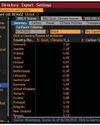
See Which Countries Are Falling Behind On Climate Change
Under the Paris Agreement, 190 countries and the European Union pledged to take steps to hold the global temperature rise to less than 2C (3.6F) from preindustrial levels—and preferably 1.5C.
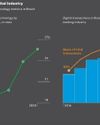
Billionaires Vie for the Future of Brazilian Finance
An escalating battle between two billionaires is upending the financial community in São Paulo, Latin America’s wealthiest city.

Ford Foundation's Darren Walker: ‘We Have to Get Uncomfortable'
DARREN WALKER, 62, disrupted his Wall Street life more than 25 years ago when he left what is now UBS Group AG to volunteer at a school and eventually pursue a career in community development and philanthropy. Since 2013 he’s been at the pinnacle of the philanthropic world as president of the Ford Foundation, created by the family of automaker Henry Ford during the Great Depression to advance human welfare.

Fueling the Ener Transition
I MAY BE BIASED, but some of the most important research and data on the Bloomberg terminal lies in one of its lesser-known functions: {BNEF }

Dig Into Analysts' Estimates for Disruptive Companies
THE PANDEMIC ERA generated a whole wave of disruptive companies as it accelerated the introduction of new products and services in areas including artificial intelligence, digitization, electronic payments, online meeting platforms, and virtual currencies.
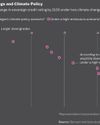
Climate Risks Come for Sovereign Credit
FOR YEARS climate scientists have warned about the ferocious wildfires and hurricanes that are now overwhelming many communities. Today alarms are ringing about a related financial danger: risks lurking within government bonds, the biggest part of the global debt market.

Responsible-Investing Pioneer Lydenberg Says ESG Needs An Upgrade
STEVE LYDENBERG’S passion for social change was inspired by anti-Vietnam War demonstrations, consumer boycotts, and the movement to divest from apartheid South Africa. But he didn’t take to the streets. Instead, Lydenberg turned to the world of finance to help catalyze societal change.

Engine No. 1's Grancio: ‘People Will Appreciate an Economic Argument'
ENGINE NO. 1 sent shock waves across corporate America in May when the fledgling investment firm won a boardroom battle with Exxon Mobil Corp., securing three seats on the oil and gas giant’s board after purchasing only about $40 million of its stock.
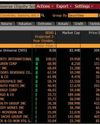
Find Out Which Companies May Ramp Up Payouts After Covid
AS THE PANDEMIC DISRUPTED business last year, many companies cut or suspended dividends. Which will boost their payouts when economies pick up again?
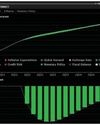
Get Into the Minds of Central Bankers as They Navigate Shocks
HAVE YOU EVER WONDERED how central bankers forecast the impact of shocks on the economy?